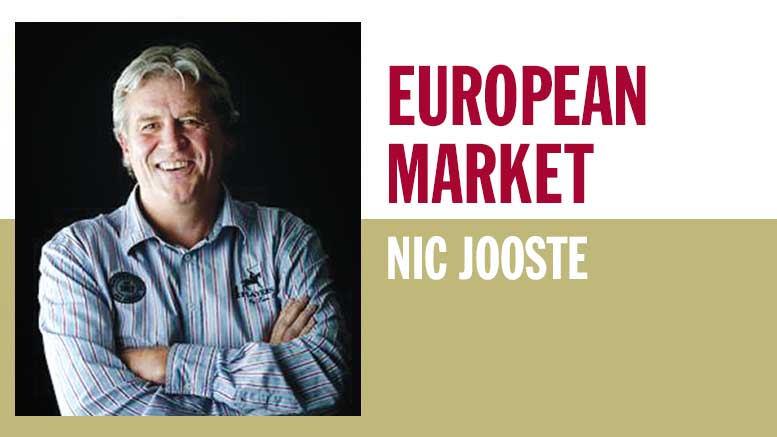Keep It Simple, For Goodness’ Sake
February 1, 2020 | 4 min to read
Change agents in the global landscape face challenges in effecting social impact, especially as consumer attitudes toward sustainability evolve. With Millennials and Generation Z comprising a significant part of the population, these generations demand that businesses adopt integrated, meaningful corporate social responsibility practices. As sustainability becomes ingrained in consumption behaviors, companies must genuinely commit to social and environmental values. Nic Jooste emphasizes the importance of simplifying the implementation of CSR strategies, making it accessible for all businesses.

Originally printed in the February 2020 issue of Produce Business.
Being a change agent for goodness is no easy thing. How do you get the ball rolling in terms of social impact if your playing field is all over the world? How do you make the correct choices in terms of social and environmental investments?
Who do you turn to for advice on giving your company social character and conscience? Yes, it is a daunting task. But I have news for you: the time to immerse yourself in such a challenge is NOW.
During the past two or three years, European consumer attitudes towards sustainability have changed in various ways. Different developments have inspired those changes, most of them relating to the emergence of new generations of consumers.
Today, almost two-thirds of the world’s population comprises Generation Z and Millennials. There can be no argument, these generations want more than any that have gone before them to make a positive contribution to the world, both socially and environmentally.
• Millennials expect, demand even, that companies operate in a way that benefits society and the planet. They expect companies to adopt a holistic, integrated approach to sustainability. They do not tolerate CSR window-dressing.
• Generation Z grew up in a globalised world packed full of information. For them, ignoring major social issues like climate change and social inequality is impossible. For Gen Z, three dominant social themes dominate: inclusiveness, sustainability and openness.
I believe these two generations have been, and will continue to be, instrumental in convincing the rest of the world to become more socially and environmentally oriented. I also believe companies that fail to demonstrate a high-integrity, CSR-oriented approach to Millennials and Generation Z will disappear from view — be it as a brand, as a business or as a potential employer.
With these younger generations leading the charge, consumer behavior in the past five years has resulted in several efforts to effect change for a better world. My contention is that ‘goodness’ has been there all along, it just needed to be triggered. Consumer psychology provides some answers as to why this is happening more and more:
• Mankind is inherently good. Everyone, in one way or another, feels the need to make a positive contribution to their own environment, and to leave a positive legacy.
• Human nature is such that people take a keen interest in the fortunes of others. Take the concept of Fair Trade, for example: other people’s happiness gives the consumer a feeling that he or she is somehow responsible for spreading goodness.
Generation Z and Millennials will be instrumental in convincing the rest of the world to become more socially and environmentally oriented.
• The consumers’ increased involvement in social issues comes from a need for positive self-image. Ideally, they want their buying and consumption behaviour to result in a good feeling.
• Last but not least, most people understand that if mankind demonstrates humanity, justice, generosity and a sense of community, then society at large benefits. These are not irrational triggers; rather, they are values that people find increasingly important.
For these reasons, more and more people are making sustainable choices. As a result, sustainability is increasingly common in the business world. More prevalent supply of sustainable products in stores, combined with better visibility in the media, is transforming mere trends into hard-wired behavior. For example:
• Brands are underlining their contribution to people and the environment.
• Entrepreneurs are eager to give their companies more meaning and purpose, and to use sustainability as an anchor.
• They also expect their marketing and sales departments to be more active by highlighting examples of sustainability in its broadest sense.
• Collaboration on CSR along individual supply chains and between companies from different chains is increasing. Business owners understand that ‘stronger together’ is key.
• Business owners are realizing that you can only embrace major social themes and ambitions if you genuinely mean what you say; it must be embedded in your identity, policy and business operations before it leads subsequently to real action.
• Last but not least, entrepreneurs now want to demonstrate they are making a real difference through their social involvement. Communicating this effectively, showing people how you are pursuing these ‘higher goals’, depends increasingly on providing concrete evidence of socially responsible activities and sustainable innovations.
For companies that really want to be taken seriously by consumers and employees alike, corporate social responsibility therefore must become an integral part of their operations, but entrepreneurs hoping to make it an integral part of their business are often criticized for simply not knowing where to start. That is due in part to the unnecessary complexity that surrounds CSR: one measure being implemented often requires yet another measure, supported by various inspections and documents. The bottom line: there is a will, but apparently not a way.
The solution? Keep it really simple.
My next column will focus on the practical side of things, explaining how to introduce a solid strategy for corporate social responsibility in a small to medium-sized business.

Nic Jooste is a Rotterdam-based specialist in corporate social engagement, marketing and branding in the fresh produce industry.
6 of 16 article in Produce Business February 2020

